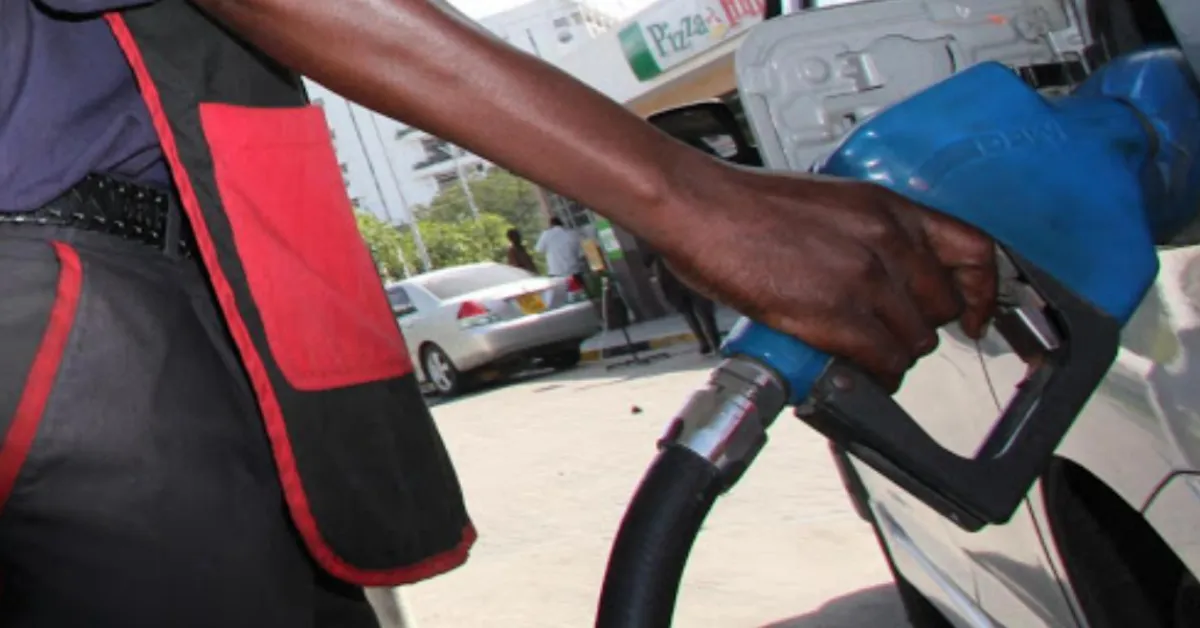Petrol Users Pay More in Taxes Than Product Cost

Kenyan motorists and businesses are facing unprecedented fuel costs as taxes and levies on petrol now exceed the actual cost of the product itself.
The latest pricing schedule from the country's energy regulator reveals a concerning trend: government-imposed charges now outweigh the base cost of fuel, exacerbating affordability issues and raising questions about the long-term economic implications. The newly gazetted figures indicate that total taxes and levies on petrol have reached Sh80.50 per litre, surpassing the product cost of Sh76.72. This critical shift underscores the increasing financial burden borne by consumers, as the pump price in Nairobi has climbed to Sh174.63 per litre when combined with other cost components like dealer margins.
Kenya's fuel taxation system comprises eight distinct levies, each contributing to the overall price paid at the pump. While this high taxation provides the government with a reliable revenue stream, critics argue that it comes at the expense of economic growth and consumer welfare. The three key entities responsible for fuel pricing and taxation decisions in Kenya are the Ministry of Energy, National Treasury, and Parliament.
These institutions craft policies and approve taxation frameworks that dictate how much consumers ultimately pay for fuel. Despite persistent public and industry complaints about high fuel costs, authorities have shown little inclination to review the existing structure.
Landed Costs vs. Retail Prices
Recent data reveals that the stability of landed fuel costs—product and freight expenses—has not translated into lower retail prices for petrol. In fact, landed costs dropped by 2.95 percent per cubic metre, yet taxation on petrol remained unchanged. The rigidity of these levies, which are either fixed amounts per litre or percentage-based charges, ensures that even when global fuel prices ease, Kenyan consumers see little relief at the pump.
This marks the first time that total fuel taxes and levies have exceeded the raw product cost of petrol, although diesel and kerosene remain priced higher than their tax components. Industry analysts have raised concerns about whether Kenya's tax policies are properly aligned with long-term economic priorities, as fuel taxes remain unchanged in the latest cycle.
Calls for Taxation Overhaul
Petroleum experts insist that redesigning Kenya's fuel taxation framework is crucial to ensuring a balanced approach—one that does not prioritise short-term revenue collection over broader economic sustainability. John Mutua, Programmes Coordinator at the Institute of Economic Affairs Kenya, argues that excessive taxation limits fuel consumption while placing unnecessary financial strain on households and businesses.
"It is not the right policy design, and that is why you have hue and cry from Kenyans. Trying to collect more through high fuel taxes is a myopic approach," he explains. "It is better to have a moderate rate to incentivise consumption, rather than impose high taxes and then introduce subsidies."
The ease of collecting tax revenue from fuel has incentivized policymakers to maintain high levies, but analysts warn that long-term consequences could outweigh the immediate benefits. Mutua asserts that while taxation is necessary, the rate structure should be evidence-based and designed to stimulate economic activity rather than stifle it.
Breakdown of Fuel Taxes
Among the taxes imposed on fuel, Value Added Tax (VAT) at 16 percent accounts for the largest share, totalling Sh24.09 per litre of petrol. The Road Maintenance Levy (RML) follows closely at Sh25, while excise duty stands at Sh21.95 per litre. Other charges include the Petroleum Development Levy, Merchant Shipping Fee, Import Declaration Fee, Railway Development Levy, and Petroleum Regulatory Levy.
The government has introduced or raised fuel taxes multiple times since July 2023, further pushing pump prices higher and exacerbating cost-of-living pressures.
The increase in the RML from Sh18 to Sh25 per litre of petrol and diesel was among the key drivers of the recent price hikes, despite previous assurances from former Transport Cabinet Secretary Kipchumba Murkomen that the levy would only be increased when global fuel prices declined. Murkomen's remarks at the time suggested that the government was keen on minimising the financial strain on consumers. However, a later policy reversal saw the levy increased, regardless, contributing to Kenya's soaring fuel costs.
Broader Economic Impact
While some levies, such as the Road Maintenance Levy, are considered essential for infrastructure funding, experts caution that taxation rates should be reviewed to ensure they serve economic growth rather than act as a barrier to consumption.
Since mid-2023, the government has raised three major fuel taxes, resulting in steep increases at the pump. In addition to the RML hike by Sh7, VAT on fuel was doubled to 16 percent, pushing petrol prices above the Sh200 mark for the first time in Kenya's history.
Between September 15 and October 14, 2023, petrol peaked at Sh211.64 per litre, while diesel climbed to Sh200.90 per litre. The Petroleum Regulatory Levy also tripled—from Sh0.25 to Sh0.75 per litre—further straining consumers.
Regional Comparison
Compared to neighbouring countries, Kenya now has the most expensive fuel in the East African region, surpassing Uganda and Tanzania. In Nairobi, petrol costs $1.35 (Sh174.49) per litre, higher than $1.32 (Sh170.61) in Kampala and $1.09 (Sh164.15) in Dodoma. Diesel follows a similar pattern, costing $1.27 per litre in Nairobi, compared to $1.26 in Kampala and $1.06 in Dodoma.
Hope for Relief?
Despite Kenya's heavy taxation framework, there are signs that fuel prices may not see additional hikes in the near term. The Finance Bill 2025 notably does not propose further increases in fuel taxes, marking a departure from past trends where July typically brought new taxation measures. As fuel prices remain at record highs, pressure continues to mount on policymakers to reconsider Kenya's taxation approach.














Comments
Why complain about heavy…
Permalink
Why complain about heavy taxation yet none questions the 5.9m survivors of the 6.2m YES katiba idiots.Ask them why they took corruption to the grassroots by multiplying all evils by 48 times.Nani ako na akili anakopaga pesa ya kulipa kuimbiwa baada musaahara wa majambazi?Why take loans to pay 900 prostitutes nominated in 49 official brothels?Ask them how they will recover shs7.3t looted by muuaji Uhuru & Co.from 2013-2023 and the trillions being stolen by muuaji Kipchichir led looters.
Add new comment